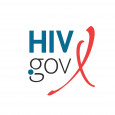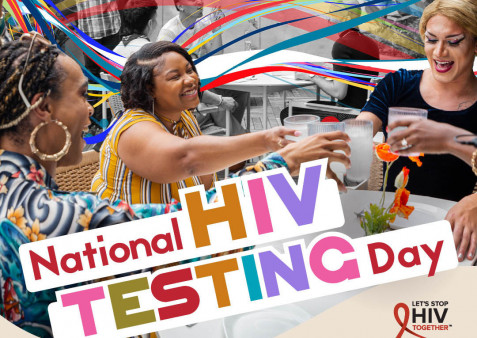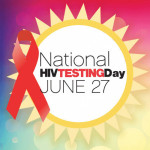National HIV Testing Day (NHTD) is in 16 days. Annually observed on June 27th, it is a day to emphasize and encourage HIV testing, and this year’s theme is “Level up your self-love: check your status.” Knowledge of HIV status is the first step to accessing prevention or treatment services that enable individuals to live long and healthy lives regardless of their status. HIV testing can be free, easy, fast, and confidential, and HIV self-tests can be done when and where an individual chooses.
To get ready for the day, we would like to share the following resources with you.
Upcoming Events
- Register for CDC’s 2024 NHTD webinar on Thursday, June 13, 2024, at 1 pm ET.
- Find information about free rapid HIV and STI testing (syphilis and Hep C) on June 27!
Resources
Visit CDC’s HIV Awareness Days page to find social media posts and graphics to help emphasize and encourage HIV testing on NHTD (in English and Spanish).
Locators hosted by HIV.gov and CDC.gov, among others, allow individuals to search by ZIP code for testing services or self-test kits provided by local, state, and national programs.
Let’s Stop HIV Together testing resources include a prefiltered link, where results can be filtered based on the desired format, audience, and language.
HIV screening is covered by health insurance, as required under the Affordable Care Act. For individuals without insurance, free testing is available. Use Get Tested to search for free testing resources. Individuals 17 and older can order up to two free HIV self-testing kits via Together TakeMeHome, also available in Spanish. More information about HIV testing is available on the HIV Testing Overview page.
Check out this blog that shares more about the U.S. Business Action to End HIV and their NHTD Playbook for Employers (PDF, 7.20MB).
Visit the National HIV Testing Day events page on HIV.gov.
Testing Recommendations
CDC recommends the following HIV testing guidelines:
- Everyone between the ages of 13 and 64 should get tested for HIV at least once as part of their routine health care.
- Those with certain ongoing risk factors – such as having more than one sex partner since their last HIV test or having sex with someone whose sexual history they don’t know – should get tested annually. Sexually active gay and bisexual men may benefit from more frequent testing (e.g., every 3 to 6 months).
- Pregnant people should get tested for HIV during each pregnancy. Testing pregnant people and treating those who have HIV is a highly effective way to prevent babies being born with HIV.
Stay Connected
Follow HIV.gov for upcoming NHTD resources, including messages from The Presidential Advisory Council on HIV/AIDS.
Participate on social media by using #HIVTestingDay and share the message that there are many options for getting tested.
This blog post was published June 11, 2024, on HIV.gov.









Comments
Comments